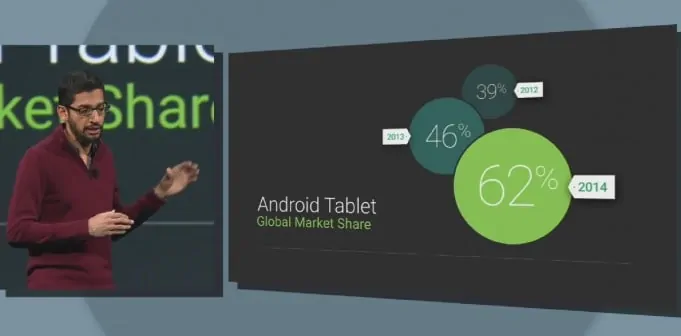Google CEO Sundar Pichai this morning told all, via Twitter, that the company’s annual I/O developer conference would take place May 18-20.
This time, however, the show, which provides insight into Google’s future product plans in addition to hands-on access to early betas and developer tools, will take place in Mountain View. In past years, the Moscone Center in San Francisco played host — who can ever forget that fantastical demo of Google Glass and the skydivers and BMX riders a few years back? Proof positive: great demos don’t necessarily translate into great products.
But: tech futurists these days seem more chill. Visions aren’t quite as grand.
I/O'16 coming to neighborhood where it all started 10 yrs ago: Shoreline Amphitheatre in Mountain View, May 18-20. More details soon. #io16
— Sundar Pichai (@sundarpichai) January 12, 2016
4K receives plenty of headlines, but higher resolution images and videos don’t seem to be setting the consumer space as abuzz as it is the manufacturers. 4K could be the new 3D. It’s nice to have, and inevitable, yet far from the next big thing.
Tablets and smartphones have matured. With Apple reportedly cutting back iPhone orders last quarter it would seem even demand for the Holy Grail of phones has slowed, at least for now.
Smartwatches — largely absent last week at CES in Las Vegas — may have already flamed out (regardless, I still love my Pebble Time and Wear-based Asus ZenWatch 2), save for those of us in the tech blog universe.
Aside from Android Wear, Google’s main platforms, notably its Android and Chrome operating systems, are mature, and seeing incremental updates, not game-changing tidal waves we saw, say, in 2009/2010.
So, what can light the world on fire at Google I/O in 2016?
Virtual reality is one bet. Google, though, has tip-toed into that space with Cardboard. Not as dazzling as Oculus Rift, to be sure, but a dirt cheap (and clever) way to experience the potential of VR. I don’t expect much from Google this year in this space, though a Re/Code report and responsibility shift inside the company may signal otherwise.
More likely, we’ll hear more about the expansion of Project Fi. Updates to Android, Android Wear, and Chrome are sure bets. New phones are unlikely given the refresh we saw last quarter with the well-received Nexus 5X and Nexus 6P handsets.
Internet of Things, aka IoT, will surely receive air time as well. Google, Microsoft, Apple, and others are all making bids to own our homes, and all the (ad-alicious) personal data that goes along with it. I remember back in 1999 when I was at Cisco, we were talking similar ideas — smart Refrigerators that could tell us when they were low on milk, IP-enabled HVAC systems and gas pumps, context-aware devices, and on and on. The difference today is Internet bandwidth, along with low-cost storage (cloud) and high-performance mobile chips, are sufficient to turn some of these visions into realities.
Now that Larry and Sergey are chasing bigger dreams with Alphabet, it will be interesting to see how and where Pichai takes Google. Let’s hope innovation and swinging for the fences remain key tenets of the culture. We’ll know more in May.


